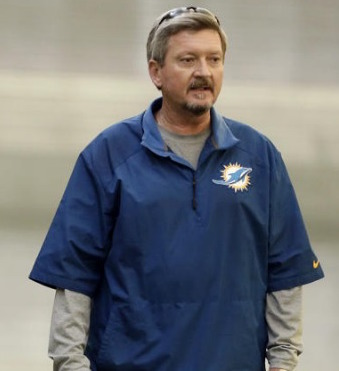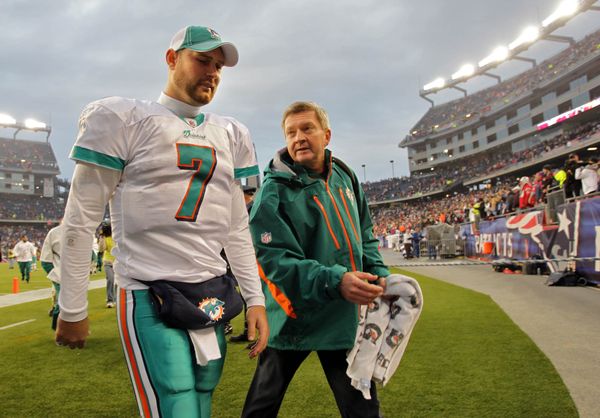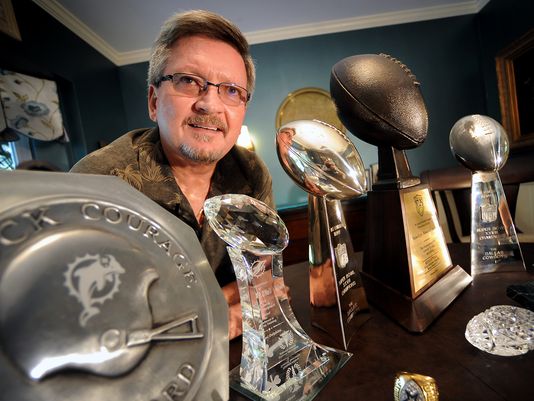
Imagine walking into the gym, heading to the weight rack, swiping your wristband by a tablet and seeing your workout — the one tailored just for you — displayed on the screen.
As you move through your workout, your performance metrics are captured and stored so you can measure your progress.
Upon completion, you pick up a specially designed sports drink, one that is based on your individual profile of how — and what — you sweat.
Between workouts you might want to rest. You won’t take an ordinary nap, though. Instead you’ll be working on relaxation and recovery using microcurrent stimulation, listening to neuroacoustic software while wearing an eye mask.
And should you have any questions along the way, there is a team of experts available to help you in any area you wish to target. Two sports performance specialists, a sports science analyst and a nutritionist work full-time alongside strength and conditioning coaches, rehabilitation personnel and the football coaches themselves to create an environment in which optimizing performance is key.
This might sound like the way of the future when it comes to complete performance training … but the future is now for the Miami Dolphins.
Wayne Diesel, the Dolphins’ new director of sports performance, brings years of experience as a physical therapist and researcher to the organization in an effort to create fitter, stronger and healthier athletes.
Prior to joining the Dolphins, Diesel was the head of medical services for the Tottenham Hotspur Football Club of the English Premier League. In that role, he oversaw a diverse medical group including physicians, physical therapists, sports scientists and nutritionists, among others.
Diesel credits his Premier League experience with shaping his focus on performance improvement. In that environment, the player represents an investment to the organization. “The emphasis therefore is on not just preventing injury but also improving that player so that when the club sells him, it’s an asset,” Diesel said. “We found by making them better athletes, they become less injured.”
How did this revelation come about?
“We were spending less time with injured players because we had fewer injuries,” Diesel explains. “Then we started looking after the fit players more, in the sense of keeping them fit, not waiting until they had an injury to treat.”
He began to see if he could identify things in an athlete’s movement that would indicate where future issues might pop up. “I thought by looking at movement patterns, maybe I can predict what an athlete might be exposed to for injury or what might be limiting his performance,” Diesel said, “and then I found the two started working together.”
Dolphins executive vice president of football operations Mike Tannenbaum hired Diesel, whose name came to Tannebaum from RC Buford, his friend and the general manager of the San Antonio Spurs, who he describes as a “forward-thinking, out-of-the-box guy.” Tannenbaum was intrigued by Diesel’s work with Premier League athletes because he felt his proactive approach to addressing player health was needed.
“I think we do a great job of fixing injuries here,” Tannenbaum said. “I think the narrative of dealing with players and their bodies ahead of time is somewhere we can improve and that really came from [owner] Steve [Ross].”
Diesel joined the Dolphins in February and immediately got to work on understanding the sport of football and the specific demands on its athletes.
Part of his proactive approach includes trying to identify potential injuries before they occur. As part of that effort, Diesel and his team are gathering performance metrics and monitoring physical measures to help identify subtle changes that could signal an injury-in-waiting.
To that end, the Dolphins have partnered with Kitman Labs, a Silicon Valley sports science and technology company. The Kitman system includes markerless 3D video technology to record an athlete performing various range-of-motion measures necessary for football activities. The data analysis software can alert the team to subtle changes in motion, something that might warrant further evaluation by a member of the team’s medical staff.
Kitman, whose work in the area of injury prevention originated with European rugby athletes, recently expanded to the U.S. Their first partnership with an American professional sports team, the Los Angeles Dodgers, was announced earlier this year.
The Dolphins are their first NFL partner.
Kitman’s markerless motion capture system (CAPTURE) allows for quick, efficient measurement and analysis of various range-of-motion elements, such as rotation at the hip and shoulder.
Traditional laboratory biomechanical movement analysis requires a subject to wear reflective markers while performing movements that are then tracked with high-speed cameras. (The realistic athletic movements in the Madden NFL video games are generated in much the same way.) Requiring an athlete to regularly wear lycra gear with markers and run through range-of-motion exercises would be too time-consuming to be practical.
That’s where the markerless system comes into play.
“It takes just seconds to perform the entire series,” Diesel noted.
So how do they know it actually measures what it says it does? According to Kitman’s CEO and co-founder Stephen Smith, validating the accuracy of the metrics is critical so Kitman undertook an MRI study with this in mind. Comparison studies of the markerless motion capture system with magnetic resonance imaging (MRI) and traditional marker systems are currently underway. Early results suggest CAPTURE correlates with the gold standard marker-based system and MRI joint localization, although the sample size thus far is small.
The concept of basing these metrics in science to identify at-risk athletes may be partly why these two entities — the Dolphins and Kitman — have united. But Diesel is quick to say he prefers to take the emphasis off the term “injury prevention.” It’s all about getting players in the right mindset.
“If you want someone to buy into something, it’s better when you can give them a positive side rather than emphasizing the negative,” Diesel explained.
“Over the years I’ve found when you say the word ‘injury’ to athletes, they don’t want to talk about them. But if I say things like, ‘I’m going to help you perform better, going to make you play longer, run quicker, jump higher,’ they see that as a more positive context.” The natural spinoff from a performance-enhancement focus, says Diesel, is a healthier athlete.
“The fitter you are, the more rested you are, the better you recover, your likelihood of injury is going to be less.”
For the program to work, regardless of the technology, there has to be buy-in from the participants. Diesel insists any information he gathers is shared with his players, noting trust is critical to success of the program.
“As smart as Wayne is and as many new and innovative things as he may present to the team, if they don’t believe in him and think that he has their best interests at heart, it won’t work,” said Dolphins head coach Joe Philbin said.
Apparently, the players see it too.
“In his short time here, he’s earned the respect and the trust of the players” Philbin noted. “He’s bright, he’s intelligent, but more importantly he cares about the players and they believe in him.”
It’s telling that most players opted to seek Diesel’s counsel and track their measures during training camp while the program was still voluntary. Participation is now mandatory for rostered players, just as participation in on-field and conditioning workouts is part of being a member of the team. The organization’s hope is everyone will end up benefiting to some degree.
ORIGINAL ARTICLE:
http://espn.go.com/nfl/story/_/id/13665228/miami-dolphins-aim-prevent-injuries-futuristic-sports-performance-program-nfl






